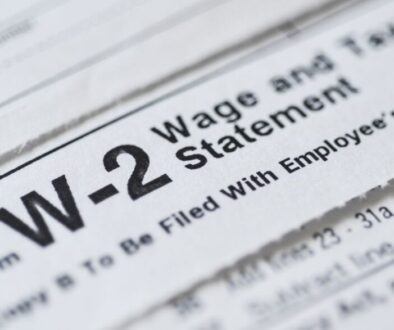Understanding Tax Deductions for Buying a House
Table of Contents
Understanding Tax Deductions for Buying a House
Purchasing a home is a significant milestone for many individuals and families. Beyond the emotional satisfaction of owning a property, there are financial implications that can greatly influence your decision. One of the most compelling aspects of homeownership is the potential for tax deductions.
Understanding these deductions can help you maximize your financial benefits and make informed decisions about your investment.
The Basics of Homeownership Tax Deductions
When you buy a house, you may be eligible for various tax deductions that can reduce your taxable income. These deductions can significantly impact your overall tax liability, making homeownership more affordable. Here’s a closer look at the primary deductions available to homeowners.
Mortgage Interest Deduction
One of the most substantial tax benefits for homeowners is the mortgage interest deduction. This allows you to deduct the interest paid on your mortgage from your taxable income.
- Eligibility: To qualify, your mortgage must be secured by your primary residence or a second home. The deduction applies to mortgages up to $750,000 for loans taken out after December 15, 2017. For older loans, the limit is $1 million.
- How It Works: Each year, your lender will provide a Form 1098, detailing the amount of interest paid. You can then use this information to claim the deduction on your tax return.
Property Tax Deduction
Homeowners can also deduct property taxes paid on their real estate. This deduction can provide significant savings, especially in areas with high property tax rates.
- Limitations: The total deduction for state and local taxes, including property taxes, is capped at $10,000 for individuals and married couples filing jointly. This limit applies to the combined total of property taxes and state income taxes.
- Claiming the Deduction: To claim this deduction, you will need to itemize your deductions on Schedule A of your tax return.
Additional Deductions for Homeowners
In addition to the primary deductions, there are several other tax benefits that homeowners may be eligible for. Understanding these can further enhance your financial situation.
Mortgage Insurance Premiums
If your down payment is less than 20%, you may be required to pay for private mortgage insurance (PMI). Fortunately, these premiums can also be deducted.
- Eligibility: The deduction for mortgage insurance premiums is subject to income limits. If your adjusted gross income exceeds $100,000, the deduction begins to phase out.
- Claiming the Deduction: Similar to other deductions, you will need to itemize your deductions to benefit from this.
Home Office Deduction
For those who work from home, the home office deduction can provide additional tax relief. This deduction allows you to claim a portion of your home expenses related to your workspace.
- Requirements: To qualify, your home office must be used exclusively for business purposes. You can choose between the simplified method, which allows a standard deduction based on square footage, or the actual expense method, which requires detailed records of expenses.
- Calculating the Deduction: The deduction can include a percentage of your mortgage interest, property taxes, utilities, and repairs based on the size of your home office.
Potential Tax Benefits of Selling Your Home
If you decide to sell your home, there are also tax implications to consider. Understanding these can help you maximize your profits and minimize your tax burden.
Capital Gains Exclusion
When selling your primary residence, you may qualify for a capital gains exclusion, which allows you to exclude a significant portion of the profit from your taxable income.
- Eligibility: To qualify, you must have owned and lived in the home for at least two of the last five years. Single filers can exclude up to $250,000 in capital gains, while married couples filing jointly can exclude up to $500,000.
- Calculating Gains: The gain is calculated by subtracting your adjusted basis (the purchase price plus improvements) from the selling price.
Home Sale Expenses
When selling your home, certain expenses can be deducted from your capital gains, reducing your taxable profit.
- Deductible Expenses: These can include real estate commissions, advertising costs, and repairs made to the home before the sale. Keeping detailed records of these expenses is crucial for accurate reporting.
- Impact on Taxes: By deducting these expenses, you can lower your overall capital gains, potentially allowing you to stay within the exclusion limits.
Tax Considerations for First-Time Homebuyers
First-time homebuyers may have access to additional tax benefits that can ease the financial burden of purchasing a home.
First-Time Homebuyer Credit
While the first-time homebuyer tax credit was eliminated for most buyers, certain programs still exist that can provide financial assistance.
- State Programs: Many states offer first-time homebuyer programs that provide tax credits or down payment assistance. Researching local options can uncover valuable resources.
- IRA Withdrawals: First-time homebuyers can withdraw up to $10,000 from their traditional IRA without incurring the early withdrawal penalty. This can be a helpful source of funds for a down payment.
Energy Efficiency Tax Credits
Investing in energy-efficient home improvements can also yield tax benefits. Homeowners may qualify for tax credits for specific upgrades.
- Eligible Improvements: These can include solar panels, energy-efficient windows, and heating and cooling systems. The credits can vary based on the type of improvement and the year it was installed.
- Claiming the Credit: To claim these credits, you will need to complete the appropriate forms when filing your taxes.
Navigating Tax Deductions: Tips for Homeowners
Maximizing your tax deductions requires careful planning and organization. Here are some strategies to help ensure you take full advantage of available benefits.
Keep Detailed Records
Maintaining accurate records of all home-related expenses is essential for claiming deductions.
- Documentation: Keep receipts for mortgage payments, property taxes, and home improvements. This documentation will be invaluable when preparing your tax return.
- Organizing Records: Consider using a dedicated folder or digital storage system to keep all relevant documents in one place.
Consult a Tax Professional
Navigating the complexities of tax deductions can be challenging. Consulting a tax professional can provide valuable insights and help ensure you’re making the most of your deductions.
- Personalized Advice: A tax professional can offer tailored advice based on your specific financial situation and help you identify deductions you may have overlooked.
- Tax Planning: They can also assist with tax planning strategies to minimize your liability in future years.
Common Mistakes to Avoid
While tax deductions can provide significant savings, there are common pitfalls that homeowners should be aware of.
Failing to Itemize Deductions
Many homeowners mistakenly opt for the standard deduction without considering whether itemizing could yield greater savings.
- Evaluate Your Options: If your total itemized deductions exceed the standard deduction, it’s worth itemizing to maximize your tax benefits.
- Review Annually: Tax laws change, so it’s essential to review your situation each year to determine the best approach.
Ignoring Changes in Tax Laws
Tax laws are subject to change, and homeowners must stay informed about any updates that could affect their deductions.
- Stay Updated: Regularly review IRS publications and consult with tax professionals to help ensure you’re aware of any changes that may impact your deductions.
- Plan Ahead: Understanding potential changes can help you make informed decisions about home improvements and other financial matters.
Conclusion
Understanding tax deductions for buying a house is crucial for maximizing the financial benefits of homeownership. From mortgage interest and property tax deductions to potential credits for energy-efficient improvements, homeowners have various opportunities to reduce their tax liability. By keeping detailed records, consulting with professionals, and staying informed about tax laws, you can navigate the complexities of homeownership with confidence. Whether you are a first-time buyer or a seasoned homeowner, leveraging these deductions can significantly enhance your financial well-being.




